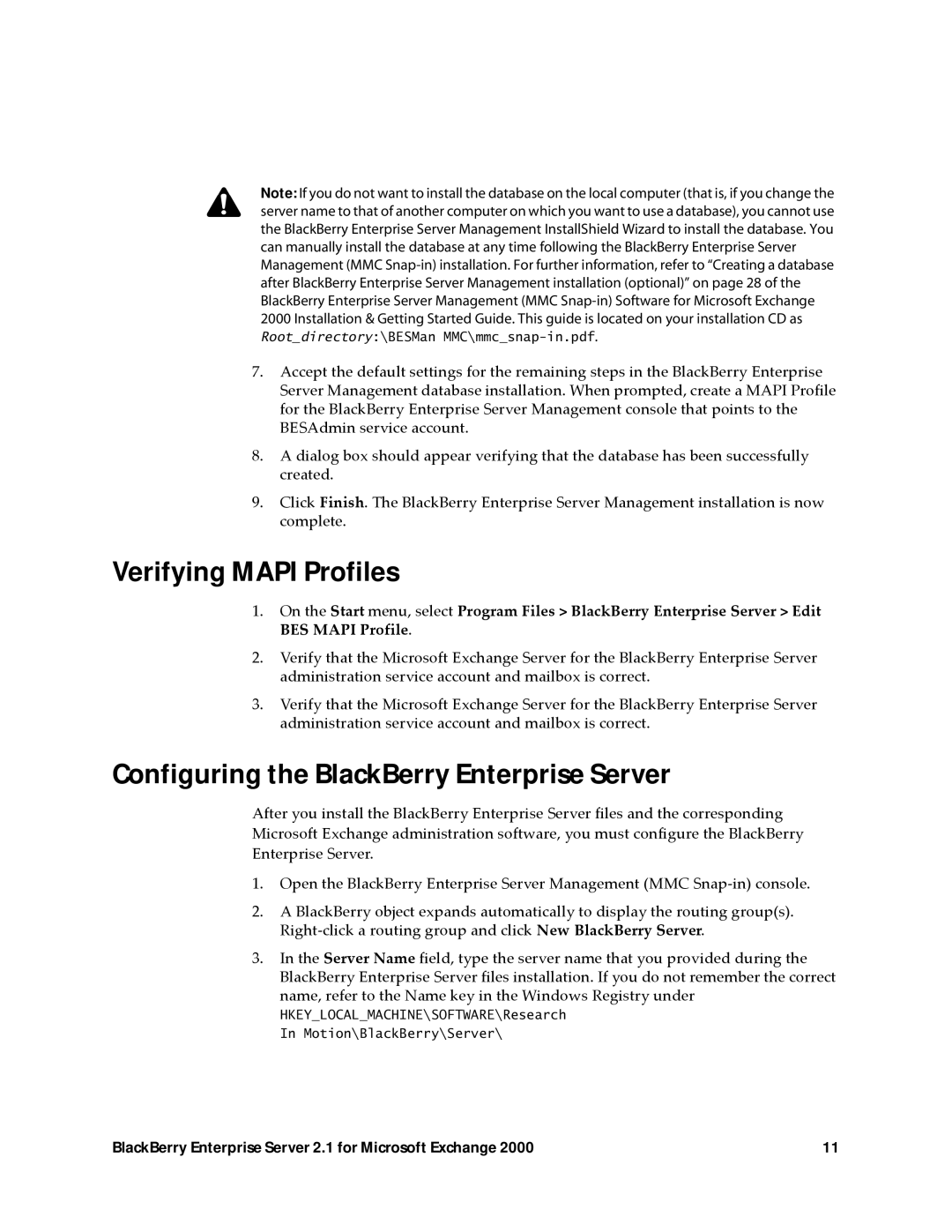Note: If you do not want to install the database on the local computer (that is, if you change the server name to that of another computer on which you want to use a database), you cannot use the BlackBerry Enterprise Server Management InstallShield Wizard to install the database. You can manually install the database at any time following the BlackBerry Enterprise Server Management (MMC
7.Accept the default settings for the remaining steps in the BlackBerry Enterprise Server Management database installation. When prompted, create a MAPI Profile for the BlackBerry Enterprise Server Management console that points to the BESAdmin service account.
8.A dialog box should appear verifying that the database has been successfully created.
9.Click Finish. The BlackBerry Enterprise Server Management installation is now complete.
Verifying MAPI Profiles
1.On the Start menu, select Program Files > BlackBerry Enterprise Server > Edit BES MAPI Profile.
2.Verify that the Microsoft Exchange Server for the BlackBerry Enterprise Server administration service account and mailbox is correct.
3.Verify that the Microsoft Exchange Server for the BlackBerry Enterprise Server administration service account and mailbox is correct.
Configuring the BlackBerry Enterprise Server
After you install the BlackBerry Enterprise Server files and the corresponding Microsoft Exchange administration software, you must configure the BlackBerry Enterprise Server.
1.Open the BlackBerry Enterprise Server Management (MMC
2.A BlackBerry object expands automatically to display the routing group(s).
3.In the Server Name field, type the server name that you provided during the BlackBerry Enterprise Server files installation. If you do not remember the correct name, refer to the Name key in the Windows Registry under
HKEY_LOCAL_MACHINE\SOFTWARE\Research
In Motion\BlackBerry\Server\
BlackBerry Enterprise Server 2.1 for Microsoft Exchange 2000 | 11 |
